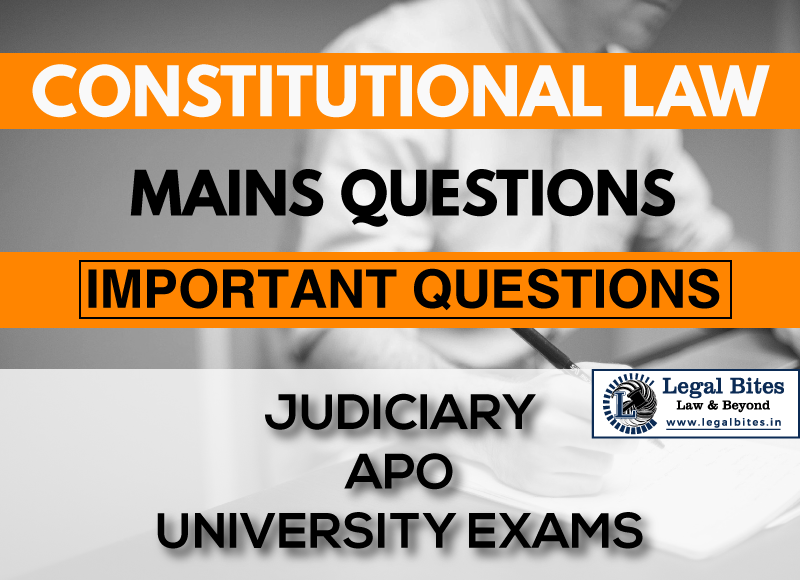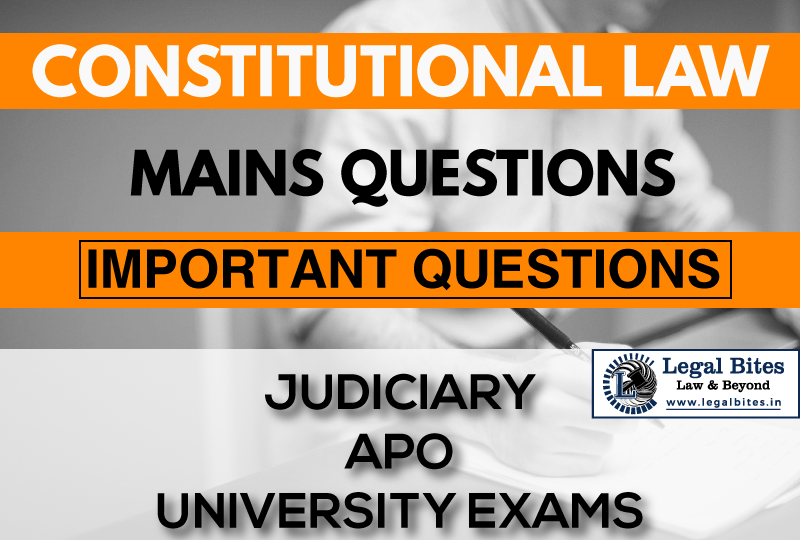
Question: Discuss the right of the President to seek information from the Prime Minister. Can the Prime Minister refuse to give desired information to President? [BJS 1987]
Find the answer to the mains question only on Legal Bites. [Discuss the right of the President to seek information from the Prime Minister. Can the Prime Minister refuse to give desired information to President?]
Answer
Article 78 of the Indian Constitution confers significant powers on the President. It is the duty of the Prime Minister to communicate to the President all decisions of the council of ministers relating to the administration of the affairs of the union and proposals for legislation. Article 78 deals with the duties of the Prime Minister in respect to the furnishing of information to the President, etc. It states that it shall be the duty of the Prime Minister to-
- Communicate to the President all decisions of the Council of Ministers relating to the administration of the affairs of the Union and proposals for legislation;
- Furnish such information relating to the administration of the affairs of the Union and proposals for legislation as the President may call for; and
- If the President so requires, to submit for the consideration of the Council of Ministers any matter on which a decision has been taken by a Minister but which has not been considered by the Council.
Thus, the Prime Minister cannot refuse to give desired information to President as per this constitutional provision under Article 78.
Therefore, despite being the Constitutional head of the Union Government, the President can certainly influence the decision-making process of the Government in some areas. Although he is generally obligated to act on the aid and advice of the CoM, in the exercise of his powers and functions conferred upon him by the Constitution, gives him the power to understand the actual decision-making process of the Government. Thus, although the President has to act on the advice of the ministers, acting on ministerial advice does not mean immediate acceptance of the minister’s first thought.
The President can state his objections to any proposed course of action and ask his Minister-in-Council, if necessary, to reconsider the matter. It is only in the last resort that he must accept their final advice. Thus, this provision essentially envisages the discretionary power of the President.
Important Mains Questions Series for Judiciary, APO & University Exams
- Constitutional Law Mains Questions Series Part-I
- Constitutional Law Mains Questions Series Part-I
- Constitutional Law Mains Questions Series Part-II
- Constitutional Law Mains Questions Series Part-IV
- Constitutional Law Mains Questions Series Part-V
- Constitutional Law Mains Questions Series Part-VI
- Constitutional Law Mains Questions Series Part-VII
- Constitutional Law Mains Questions Series Part-VIII
- Constitutional Law Mains Questions Series Part-IX
- Constitutional Law Mains Questions Series
